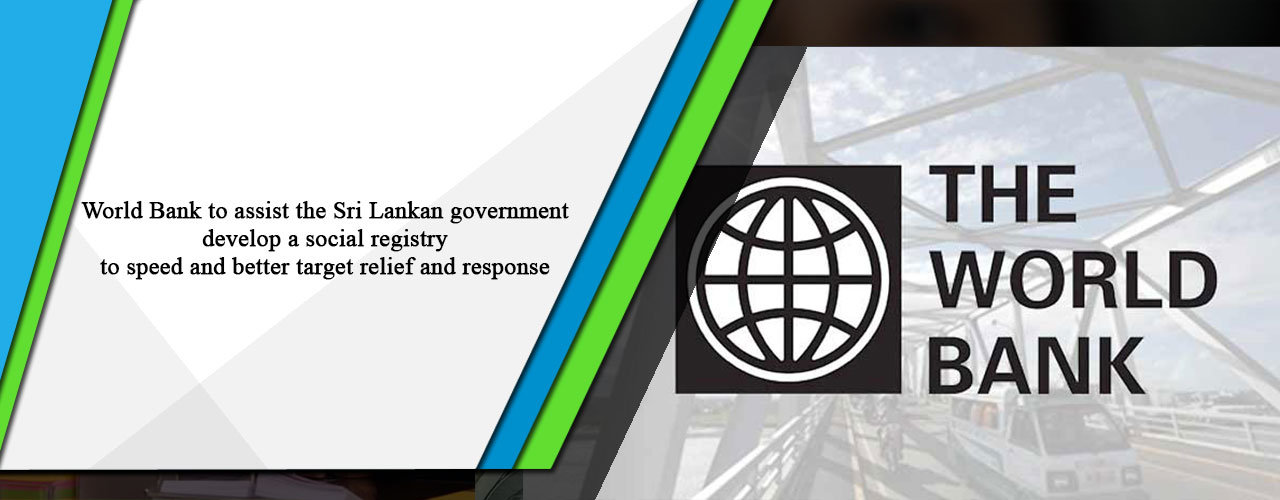World Bank to assist the Sri Lankan government develop a social registry to speed and better target relief and response
World Bank Country Director Idah Pswarayi-Riddihough has stated that the World Bank is helping Sri Lanka improve data gathering on victims of natural disasters to speed up and better target relief and response to events that risk people’s lives and retard growth.
She has said at a conference on adaptive social protection that information systems are playing an increasingly pivotal role worldwide in directing and coordinating governments’ responses to those in need.
“With support from the World Bank, Sri Lanka is developing a social registry, which is a database containing details on the needs and conditions of citizens,” Pswarayi-Riddihough has said.
“Currently there are 35 programmes implemented by 11 ministries, each with its own rules and processes and no coordination, reducing their impact and efficiency.
“A social registry can help various programmes to determine who needs the most help in a systematic and objective way.”
According to Pswarayi-Riddihough, the social registry can play a key role in responding to disasters, too, by helping the government and other agencies to identify who is affected, what their needs are, and what programs they already receive.
She has reportedly said that Sri Lanka is the envy of many countries in its income and development bracket, having reduced extreme poverty to below 1%, and poverty at the present national poverty line now down to 4.1%.
“The key concerns for Sri Lanka are less about extreme poverty; and more about vulnerability to an array of risks. Depending on the level of vulnerability, progress can be undone.”
Pswarayi-Riddihough has further noted that Sri Lanka is visited annually by natural disasters with severe floods and droughts in 2016 and 2017.
According to a recent World Bank report launched recently in Colombo, rising temperatures and changing monsoon rainfall patterns from climate change could cost Sri Lanka 7.0 percent of GDP and depress the living standards of nearly half the country’s population by 2050.
“We estimate that 5.7% of the population is at risk of falling into poverty if a shock reduced their income by 20%,” Pswarayi-Riddihough said.
OSL take:
The World Bank’s latest programme to assist in the improvement of improve data gathering on victims of natural disasters to speed up and better target relief and response to events that risk people’s lives will open up many investment opportunities in areas of disaster mitigation and disaster relief sectors in Sri Lanka. The country has been faced with floods and droughts on a frequent basis and interested foreign entities could explore investment opportunities in disaster management.
| Article Code : | VBS/AT/20181001/Z_1 |

